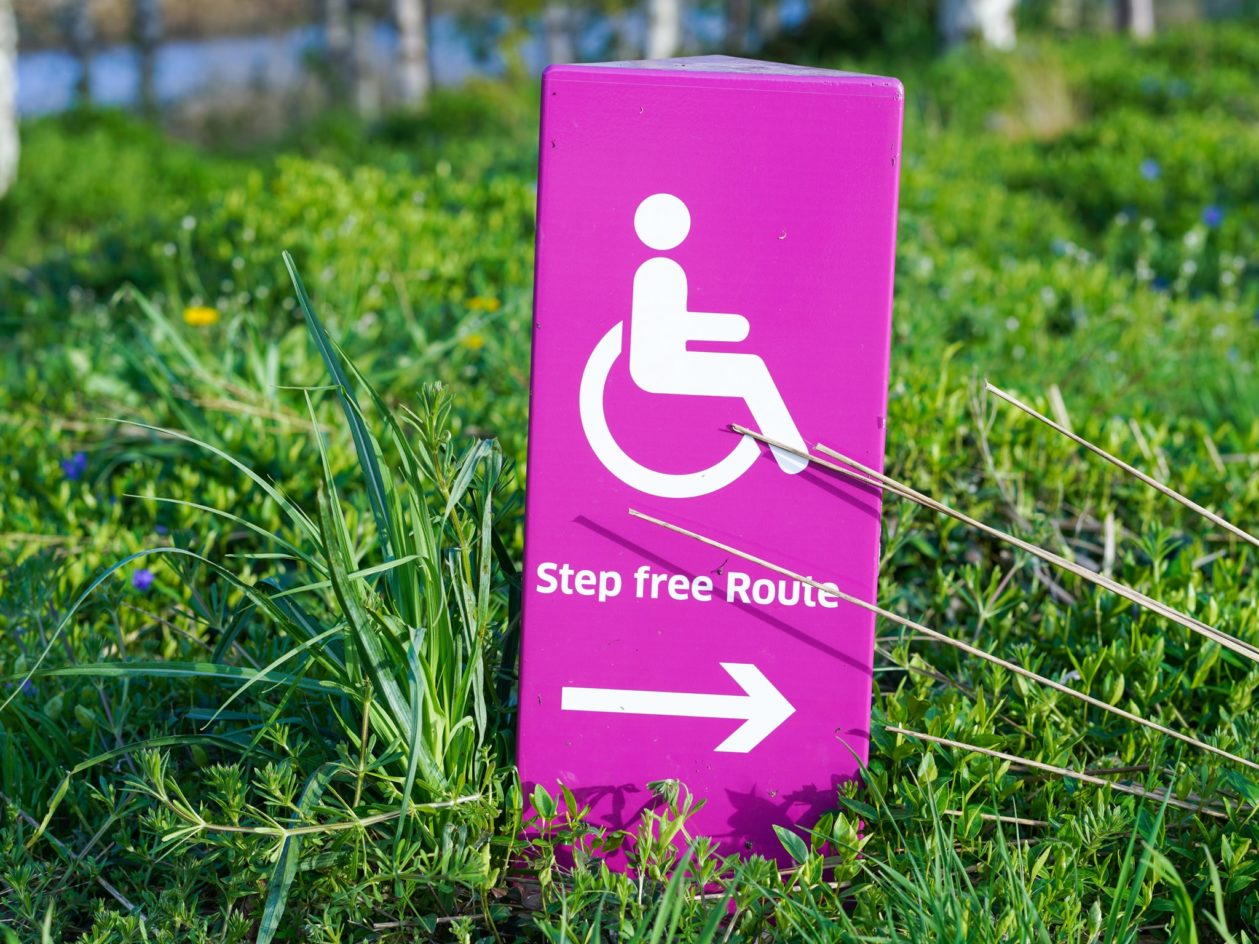“Thirty years ago, Cheryl knew exactly what she was missing, even though most others did not. Being dependent on a wheelchair to get around, her options were extremely limited. She couldn’t get into most buildings, even her bank or the local post office, without a helpful soul opening the door for her, that’s if she could even get to the door for the lack of a rampway, and the simple, human act of needing to use a restroom wasn’t even an option. For Cheryl to be as independent as she was capable of being, she needed to find employment, and the options weren’t much brighter there either. Hiring a person who experienced different physical or intellectual abilities was seen as much too much of a burden for most employers; what could they possibly do? How much extra help or supervision would they need? Why should we take on the additional costs, time and energy anyway? While Cheryl’s uphill battle, just to experience life like everyone does, was becoming more and more evident to more and more people, it wasn’t until 1990 that the Americans with Disabilities Act (ADA) was passed,” explains Walter Stockton, CEO of Independent Group Home Living. “Seen through Cheryl’s eyes, the ADA was like a rebirth into a world that worked for her like it did for everybody else. It told employers that they couldn’t use a different set of abilities as an excuse not to hire someone. The ADA even forced public spaces to finally be fully accessible, including bathrooms. In addition, it insured organizations like Independent Group Home Living (IGHL) would be funded in a way that accounted for the expenses that come with working with individuals who needed a bit more time and energy and accessibility. It also gave us the opportunity and resources to expand our services. The most gratifying result being the chance to create the kind of job that Cheryl was looking for and deserved; like the jobs that have been created by our partnership with the wonderful people of Smile Farms. Now, Cheryl works five days a week, in an environment that is fully at her command. She’s paid like anybody else who performs the same job, and she loves to watch the flowers that she’s planted blossom, just like she has.”
For far too long those with different mental and physical abilities—and the families of these individuals—were ignored and not given the proper tools to contribute to society and live productively. The modern disability movement, which brought about sweeping change such as the Americans with Disabilities Act, maintains that people with disabilities have the full right to govern their lives. This week, on July 26, we are celebrating the 30th anniversary of the ADA.

According to the official website, “the ADA is a civil rights law that prohibits discrimination against individuals with disabilities in all areas of public life, including jobs, schools, transportation and all public and private places that are open to the general public.” Similar to laws which protect individuals on the basis of race, sex, religion and other differences, the ADA makes sure those with disabilities are treated equally under the law.
As we celebrate this incredible milestone and look back at the conditions leading up to its passage, I think about the people I know who were involved in the legislation, as well as the experiences of my own family during this time.
I am so proud of the work done by someone I’m lucky enough to call a friend, John D. Kemp. John is an American disability rights leader who cofounded the ADA in 1990 and is currently president and CEO of The Viscardi Center. John is a terrific human being and a tireless advocate for improving the lives of others with disabilities. As a person with a disability who uses four prostheses, it is extraordinary to see what he has accomplished in his life, such as leading The Viscardi Center, a nonprofit organization dedicated to educating, employing and empowering children and adults with disabilities.

“The ADA is built on four pillars, embedded in the legislation, are equality of opportunity, full participation, independent living and economic self-sufficiency, to the fullest extent possible for every person with a disability,” Kemp explains. “The ADA brings us great hope that these promises will never be broken, that we will always lead fulfilled lives. That’s exactly what Smiles Farms does, what IGHL does and The Viscardi Center does, every day. Our organizations’ work is far from done, but the quality of our lives has dramatically improved with the ADA, and that’s why we celebrate it now and every day.”
Through visits to my brother Kevin’s group home, IGHL, on Long Island, N.Y., I became aware of a troubling statistic: the unemployment rate for people with disabilities is 80 percent. My friend and IGHL CEO, Walter Stockton, informed me that he and his team were finding it nearly impossible to find jobs for IGHL residents.
My family was determined to help this underserved population feel a sense of belonging while contributing to their local communities. What resulted was Smile Farms, a nonprofit organization creating meaningful work in agricultural settings for individuals who are differently abled.
Since then, Smile Farms has blossomed from a single greenhouse operation into a 501(c)(3) nonprofit organization employing over 140 individuals with disabilities over eight campuses—and counting. Smile Farms also creates vocational and educational opportunities at local farms, urban gardens and greenhouses, where hundreds of children and adults with different abilities can grow and sell flowers, plants and produce in the communities where they live.
Smile Farms produce is used in partner organizations’ kitchens, vocational programs, and are donated to nonprofits serving people in need. The Smile Farms program model works because of partnerships with non- and for-profit organizations to develop agricultural campuses that meet community needs, while motivating individuals, businesses and civic organizations, and to generate sustainable revenue to fund our partners’ indispensable services.
This is our moment to be truly inclusive in our workforce and communities. As we celebrate this 30th Anniversary of the passage of the Americans with Disabilities Act, let us all remember that we are stronger together than apart, and any effort we make to increase opportunities for people of all abilities will add value to both our business culture and our personal lives.
Smile Farms is the signature philanthropic partner of 1-800-FLOWERS.COM, Inc. Since 2015, 1-800-FLOWERS.COM, Inc. has supported Smile Farms programs through a combination of philanthropic donations, cause-related marketing promotions, in-kind assistance and national-level fundraising and promotional activities led by the enterprise’s customers and employees. www.smilefarms.org







